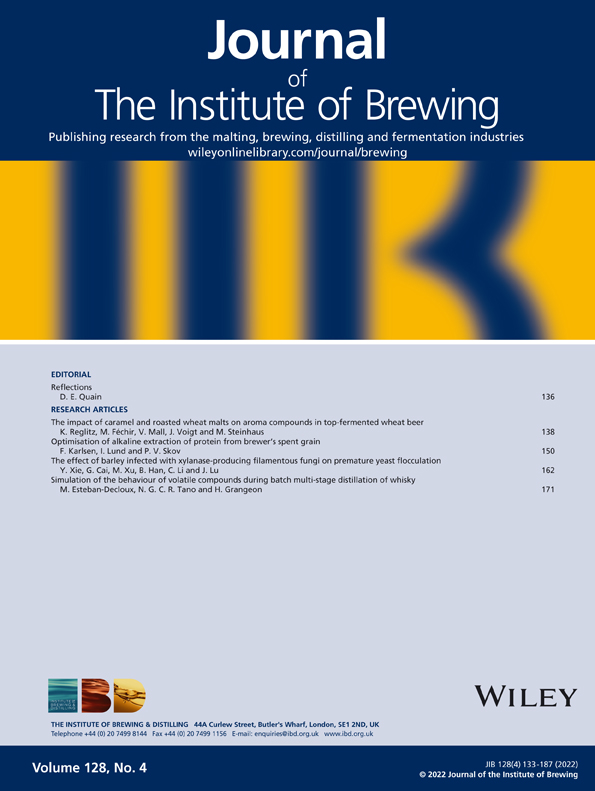INACTIVATION OF PAPAIN PROTEOLYTIC ACTIVITY IN THE PRESENCE OF ASCORBIC ACID AND CU++ IONS
Abstract
The simultaneous presence of ascorbic acid, Cu++ ions and oxygen causes reversible inactivation of proteolytic activity of papain. Low concentrations of ascorbic acid and Cu++ ions have no effect on their own. Ascorbic acid at concentrations higher than 2 × 10−4 m inactivates papain irreversibly in the presence of Cu++ ions. Papain inactivation is not accompanied by the destruction of papain molecules. Irreversible papain inactivation does not occur in solutions free of oxygen and the intermediates of ascorbic acid oxidation, i.e. dehydroascorbic acid and hydrogen peroxide, do not cause papain inactivation. The irreversible inactivation of papain is most probably due to free radicals formed during ascorbic acid oxidation. Owing to the possible occurrence of both ascorbic acid and Cu++ ions in beer, partial irreversible inactivation of papain can be expected even at very low oxygen concentrations.




